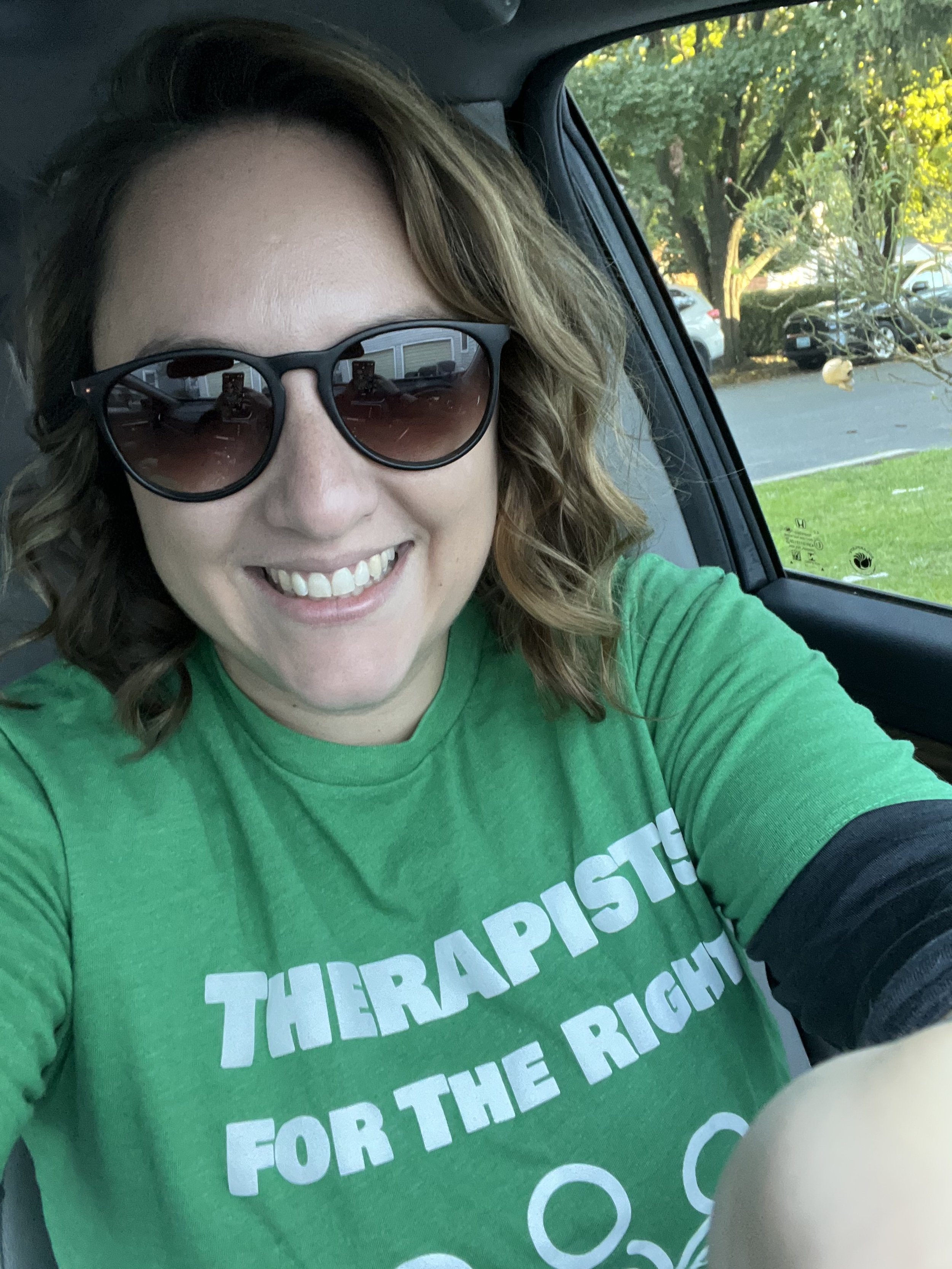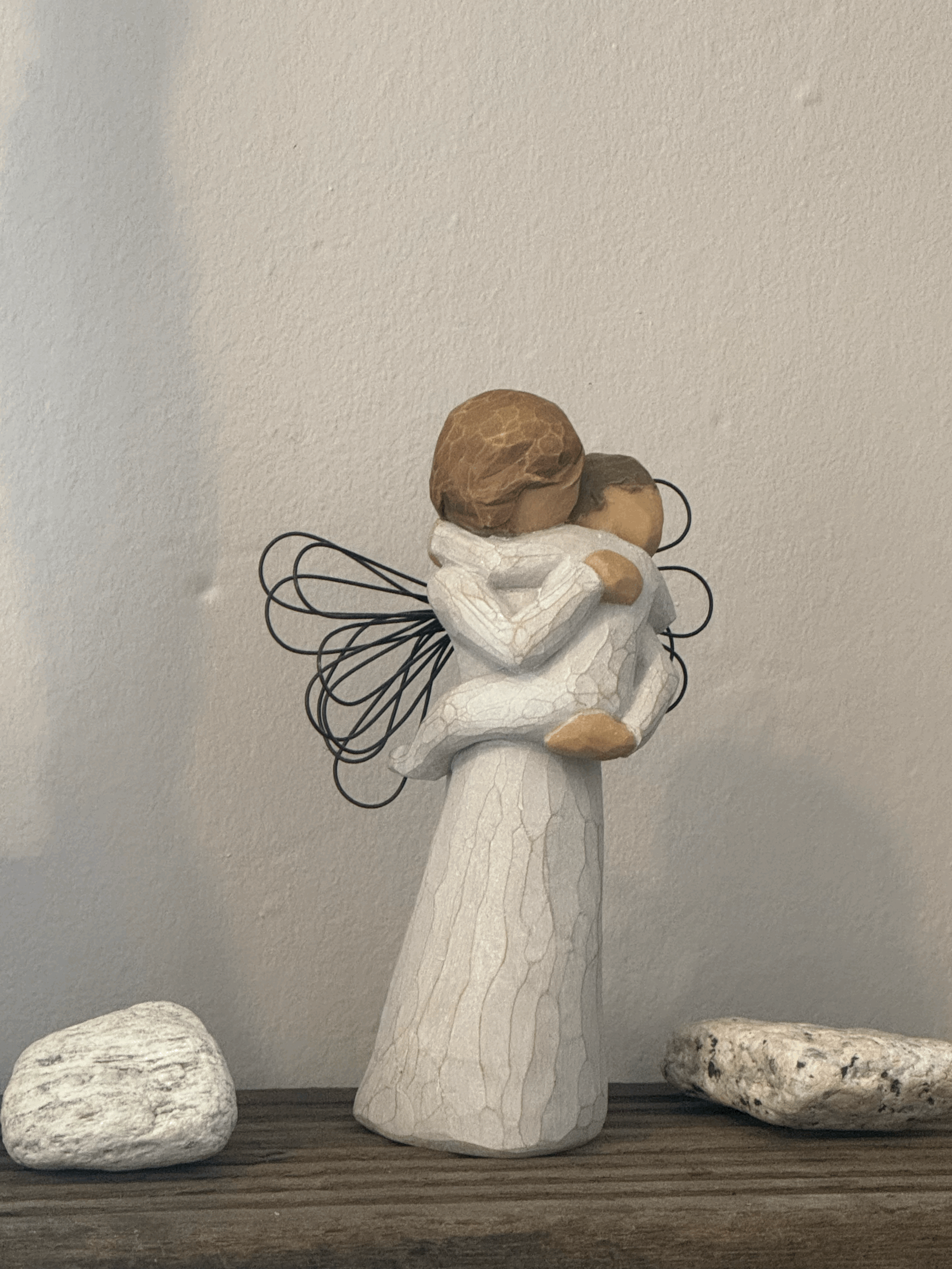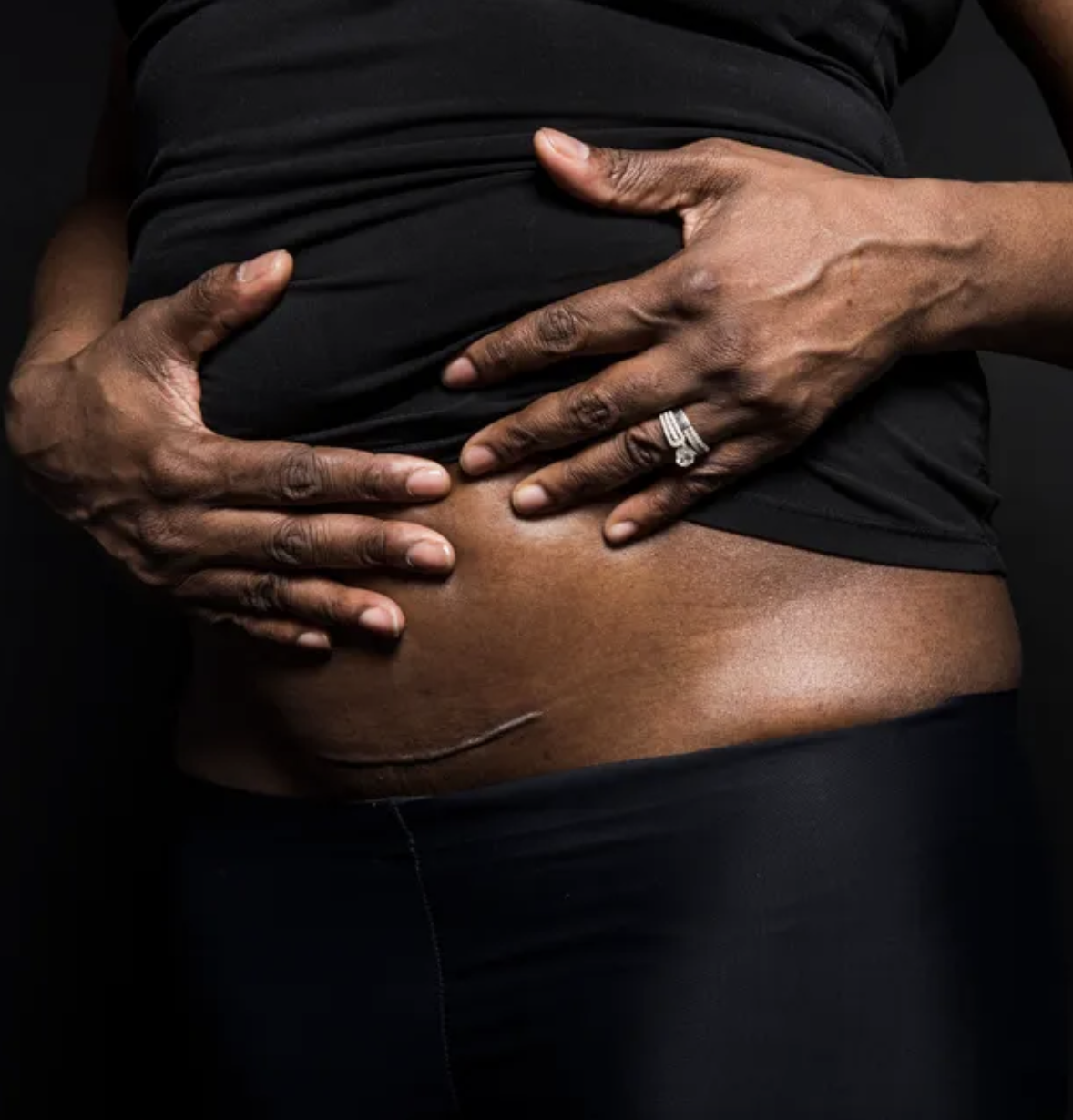
Struggling to Stay Calm as a Parent? How Equine-Assisted Therapy in Maryland Can Help You Regulate
Parenting can feel like an emotional rollercoaster. This blog explores how self-regulation impacts your nervous system, why it's so hard to stay calm with kids—and how equine-assisted therapy in Maryland can help.

Why Your Nervous System Matters More Than Parenting Hacks
Parenting isn’t about being perfect—it’s about being regulated. In this post, I explore why your nervous system matters more than any parenting hack, how the brain responds to stress (especially in kids), and how equine-assisted therapy can help you find calm, connection, and confidence in your parenting.

What a Reproductive Mental Health Therapist Wishes Pro-Life Advocates Understood
Navigating my own shifting perspectives on abortion and reproductive health has deeply shaped my journey as a mental health therapist. In this blog, I explore the nuanced realities of abortion experiences, the complexities people face, and the compassion that can bridge divides. From personal stories to actionable insights, this post challenges common misconceptions and highlights the shared humanity at the heart of these decisions. Let’s listen, learn, and foster understanding—because abortion isn’t just a political issue; it’s a profoundly human one.

How Therapy Can Help You Heal from Birth Trauma
Childbirth is often portrayed as a joyful and transformative experience, but for many parents, it can also be traumatic. When a birth doesn’t go as planned—whether due to unexpected complications, emergency interventions, or a lack of support—the impact can be lasting. Birth trauma is a real and valid experience that can deeply affect mental health, relationships, and self-esteem.
In this post, we’ll explore how therapy can help you navigate the journey of healing from birth trauma. By pacing your recovery, learning grounding skills, and reclaiming the narrative of your birth story, therapy offers a pathway to reclaim peace, find strength, and reconnect with your sense of self. If you’re struggling after a difficult birth, know that you’re not alone, and healing is possible.

Understanding Postpartum Anxiety, Postpartum Depression & Postpartum OCC
Navigating the postpartum period can be overwhelming, with emotional challenges like postpartum depression, anxiety, or even obsessive-compulsive disorder (OCD). While each condition shares similarities, understanding their distinct symptoms is essential for finding the right support. Whether you're feeling sad, worried, or struggling with intrusive thoughts, there is hope—and healing is within reach. Therapy, community support, and self-care can help you feel more like yourself again. You don’t have to do this alone—it won’t always be this way. Read on to learn how to identify these conditions and take the first steps toward recovery.

Honoring My First Baby: My Story of Pregnancy Loss
October is Pregnancy and Infant Loss Awareness Month, a time to honor and recognize the often silent grief that follows the loss of a pregnancy or infant. In this post, I share my personal journey through miscarriage and reflect on the deep impact of disenfranchised grief. I also offer resources for those navigating their own loss and remind anyone grieving that they are not alone.

What Might Be Included in Abortion Healthcare: Unpacking the Stigma and Why Mental Health Providers Need to Be Advocates
Abortion healthcare goes far beyond the controversial rhetoric—it includes essential medical procedures like D&Cs for miscarriages, treatments for life-threatening conditions like ectopic pregnancies, and compassionate care for those facing heartbreaking decisions in Termination for Medical Reasons (TFMR). Mental health providers play a vital role in supporting patients through these complex experiences, as well as advocating for accessible, stigma-free care for all.

Why Having a Specialized Perinatal Therapist Matters for Postpartum Therapy
Postpartum is a vulnerable period filled with both joy and challenges. This blog explains why having a perinatal-trained therapist is crucial for new parents seeking therapy. From specialized knowledge in postpartum depression and anxiety to understanding the nuances of birth trauma and perinatal grief, a perinatal-trained therapist provides the tailored, compassionate care needed to navigate this life-changing experience.

Why Am I Crying So Much After My C-Section? Understanding Postpartum Emotions
After a C-section, many new parents find themselves crying more than expected—and it’s not just because of the sleep deprivation. The mix of hormonal changes, physical recovery, and emotional overwhelm can trigger intense feelings that make you wonder why you’re so emotional. In this post, we’ll explore why crying is common after a C-section, what’s happening in your body, and when those tears might signal something more.

How to Choose a Therapist: A Guide for Finding the Right Fit
Choosing the right therapist is essential for your healing journey. Whether you’re seeking support for C-section recovery, grief, or reproductive mental health, it’s important to find someone who aligns with your goals and values. I specialize in perinatal care, after-abortion support, and grief, offering a compassionate, pro-choice space for individuals navigating these life experiences. In this post, I guide you through what to look for in a therapist, from credentials to therapeutic approach, and how to make the right choice for your unique needs.

Deciding Between a VBAC or a Repeat C-Section: An Empathetic Approach to Your Birth Plan
Deciding between a Vaginal Birth After Cesarean (VBAC) or a repeat C-section is a deeply personal choice that can impact both your physical health and mental well-being. This decision involves weighing medical factors, emotional readiness, and your core values. Whether you desire a sense of control, fear the unknown, or want to process past trauma, understanding the mental health implications of each option is crucial. In this guide, we explore the benefits and risks of both VBAC and repeat C-sections, provide insights on reflecting on your values, and offer support for navigating this emotional journey. Remember, the best choice is the one that feels right for you.

Understanding Disenfranchised Grief in the Context of Miscarriage, Infant Loss, and Termination for Medical Reasons (TFMR)
Grief is often associated with the loss of a loved one, but what happens when society doesn’t acknowledge or validate your grief? This is the reality for many who experience disenfranchised grief—a type of grief that is minimized, misunderstood, or dismissed. In the context of miscarriage, stillbirth, infant loss, termination for medical reasons (TFMR), and infertility, disenfranchised grief can leave individuals feeling isolated and unsupported. This blog explores how disenfranchised grief uniquely impacts those facing reproductive loss and infertility, the emotional toll it takes, and how we can provide better support to those navigating these profound, yet often overlooked, losses.

C-Section Recovery and Perinatal Mood Disorders: Navigating the Mental Health Journey
Recovering from a C-section is not just a physical journey—it’s an emotional and mental one too. Many new parents face unexpected challenges, from managing the physical healing process to coping with perinatal mood disorders like postpartum depression and anxiety. This article explores the intersection of C-section recovery and mental health, offering practical strategies for nurturing your well-being, understanding common emotional experiences, and accessing support when needed. Whether you're navigating this path for the first time or seeking a better understanding of your own experience, this guide provides compassionate insights to help you feel seen, supported, and empowered.

Understanding Maternal Mental Health: Suicide Awareness and the Importance of Informed Consent
Maternal mental health is often overlooked, but the reality is that many mothers experience significant challenges, including postpartum depression and anxiety. In severe cases, maternal suicide is a leading cause of death in the postpartum period. This blog explores the critical difference between intrusive thoughts and suicidal ideation, providing clarity for those who may feel overwhelmed by distressing thoughts. We also discuss the importance of informed consent in therapy, ensuring that mothers know when and how therapists may need to report concerns for safety.

What No One Tells You About the Connection Between Motherhood and Abortion
Motherhood and abortion are often viewed as opposing experiences, but for many women, they are deeply intertwined. In my latest blog post, I explore the complex and often unspoken connection between these two life events. With research showing that 59% of women who have abortions are already mothers, it’s clear that the decision is often driven by deep love and responsibility. I discuss how motherhood informs decisions around abortion, the emotional complexity involved, and why we need to create supportive spaces for women navigating these choices. Read more to break the silence and find compassion in these intertwined journeys.

The Mental Health Implications of C-Sections: What Every Parent Should Know
In this blog post, we explore the emotional and psychological challenges that can arise after a C-section. From postpartum depression and birth trauma to anxiety about future births and concerns about bonding, the post delves into the various mental health implications of Cesarean deliveries. Learn about common concerns, understand the emotional impact, and discover how to seek the support you need for a healthier postpartum experience.

How to Support a Friend After an Abortion: 7 Actionable Tips
Supporting a friend after an abortion requires empathy, respect, and understanding. Learn some of the ways you can best support them while knowing that ultimately, simply being there is what matters most.
